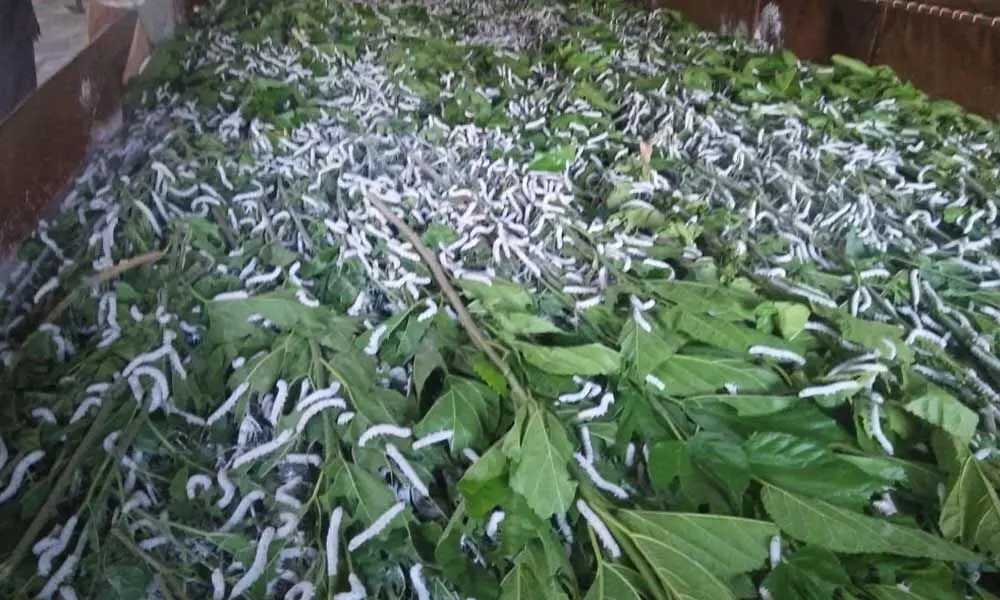Tirupati: Rising silkworm cocoon prices bring cheers to farmers
 Silkworm rearing in Chittoor district
Silkworm rearing in Chittoor districtThere is about Rs 75 to 100 per kg hike in prices Stalled imports from China amidst fears of coronavirus is one reason for the trend Steps are on to encourage more mulberry plantation
Tirupati: The sericulture farmers of Chittoor district were on cloud nine with the increasing prices of silkworm cocoons for the past few days. One of the leading producer of cocoons in the state, the district has been witnessing about 35,000 to 40,000 acre mulberry plantation presently at a time of severe water scarcity period. The plantation normally goes up further once rainy season starts.
With the raw silk imports from China being stopped amidst coronavirus fears and the fall in production of cocoons in the district, the demand supply gap has increased leading to the steep hike in prices. The prices of silkworm cocoons have touched an all-time high of Rs 572 a kg at one stage in February and seeing ups and downs above Rs 500 now which is an increase of about Rs 75 to 100 of the normal price.
This increased prices have made farmers merry as all the domestic markets are now looking at them for supply of cocoons. Currently, there is almost 20,000 metric tonne production of cocoons in the district of which about one-fifth are Bivoltine cocoons. The farming activity is more in Kuppam-Palamaner, Madanapalle and Thamballapalle areas. But due to the heat conditions, it is becoming dry now.
Speaking to The Hans India, joint director of sericulture, C Aruna Kumari has said that the prices were as low as Rs.275 per kg in 2019 and crossed Rs.500 now. According to the available forecast, prices may reach Rs 600 mark in the coming days. With this, steps have been taken to encourage free mulberry type plantation under drought resistant plan. To a question, she said the industry has been employing nearly one lakh people either directly or indirectly. Subsidies are being given to farmers to encourage Sericulture and drip irrigation systems are being installed.
A sericulture farmer who was feeling elated over the increasing prices, said several farmers were thinking of saying goodbye to sericulture due to low prices and high input costs. At this stage, now positive indications are coming up over the sericulture and farmers could be able to take home profits. While the gross production of both Bivoltine and Cross breeds of the silkworm has been 25,000 metric tonne a year, contributing Rs 1,000 crore to the annual turnover.




